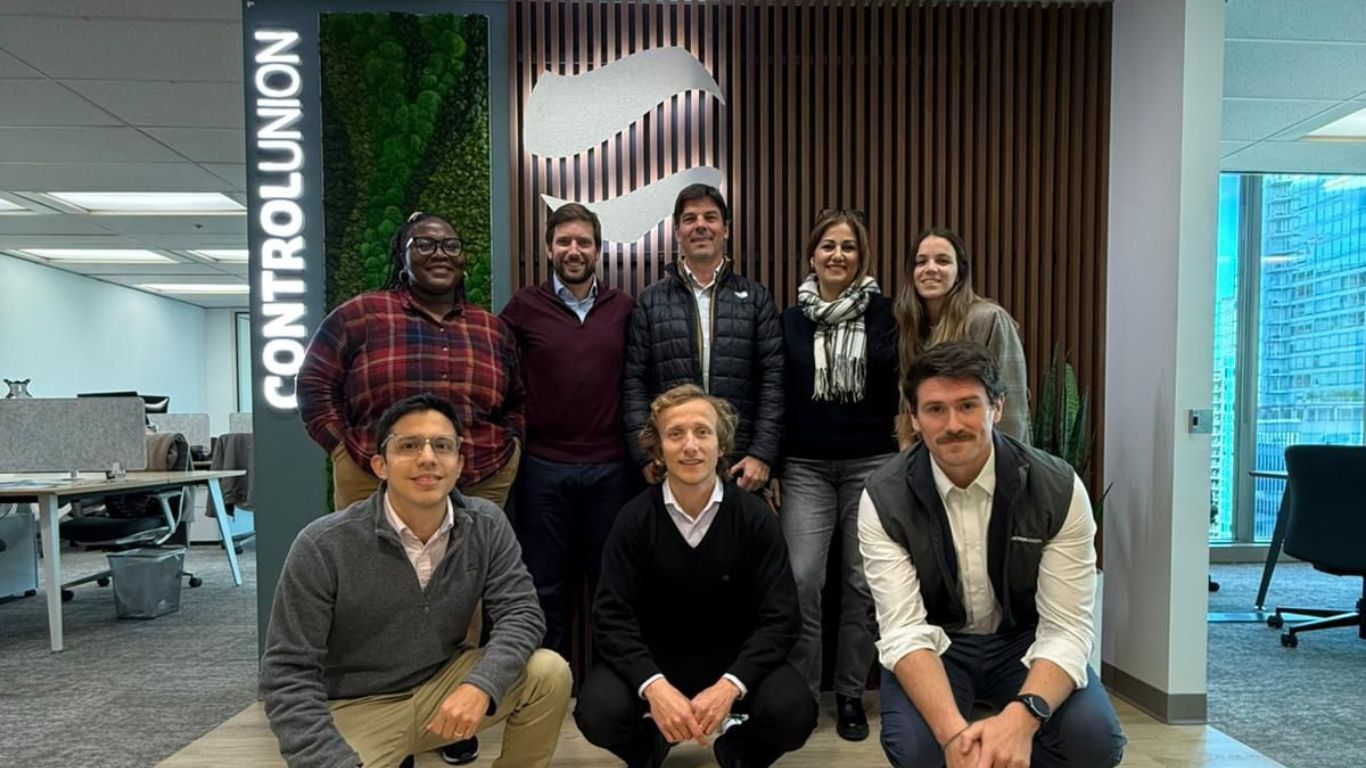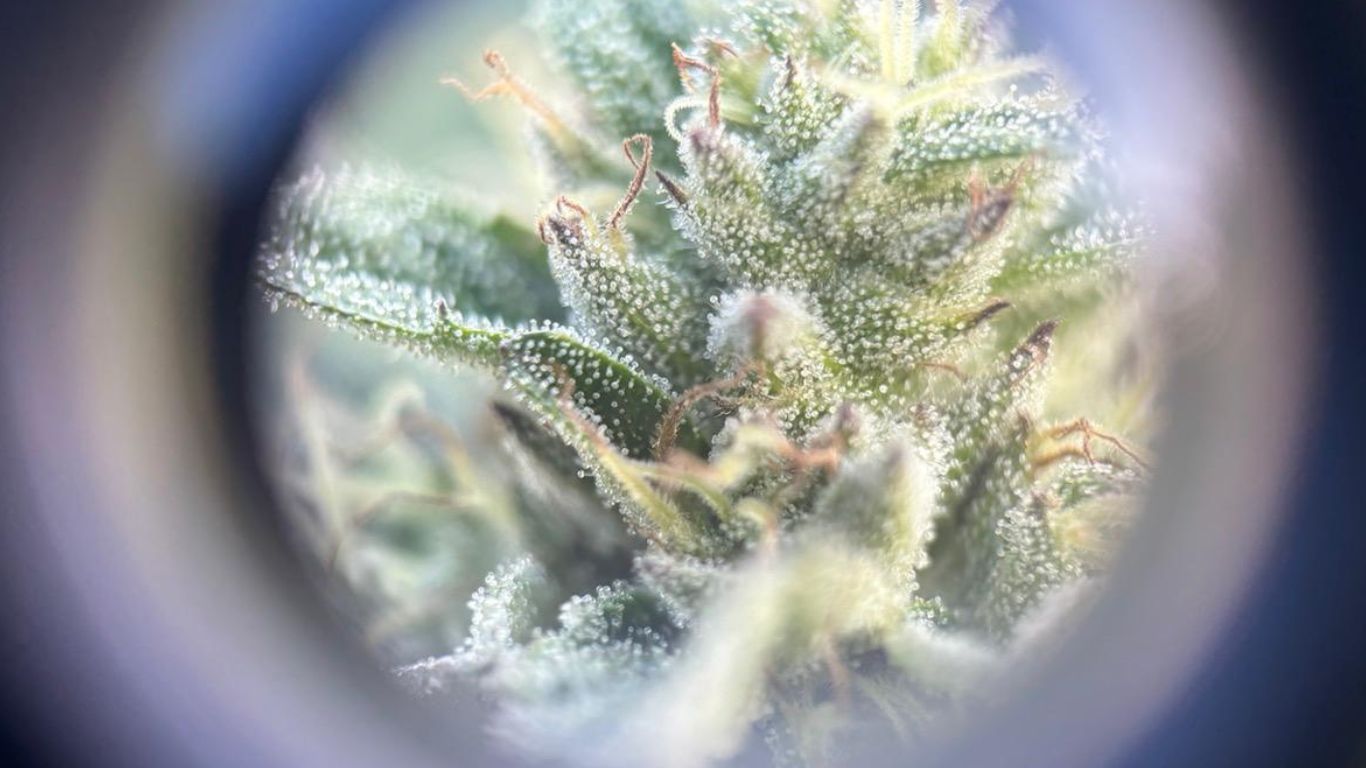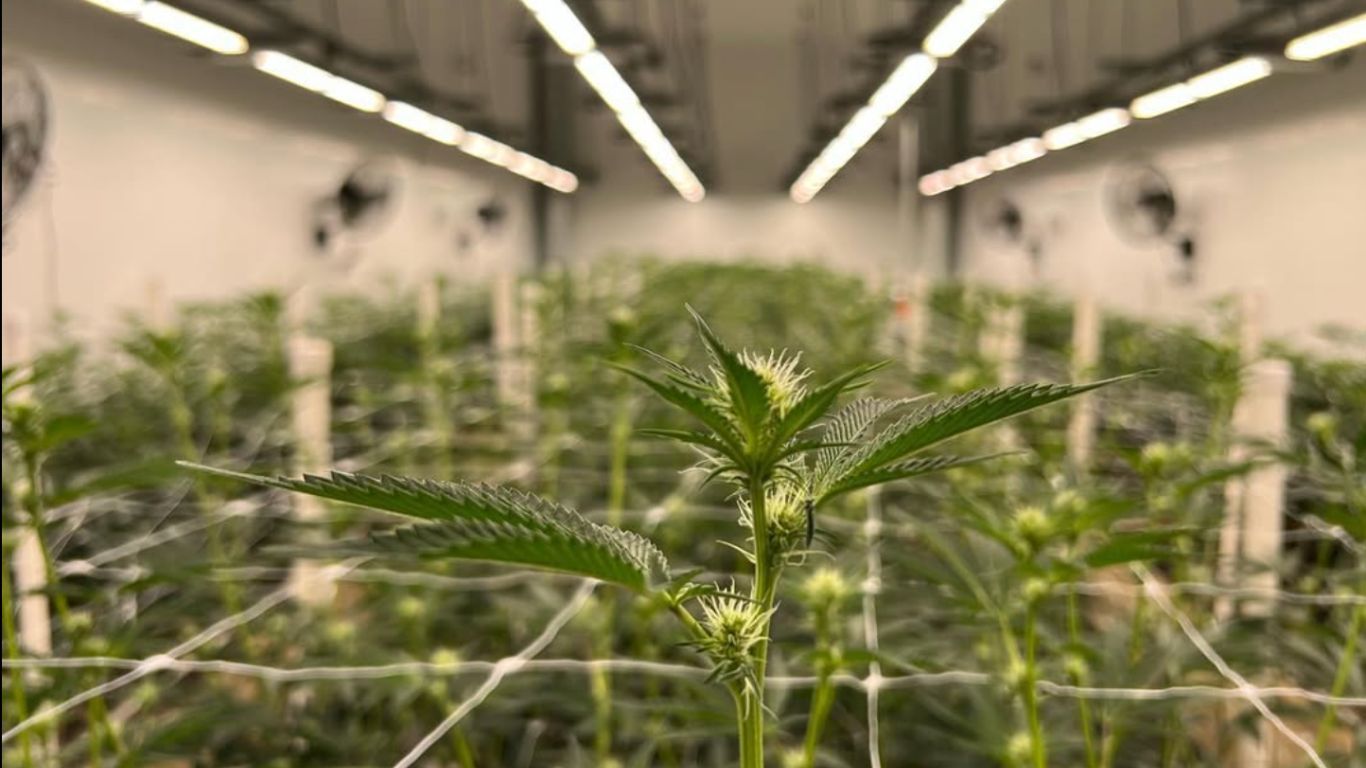
| COMPANY: | HRVSTR |
| LICENCE TYPE: | Micro cultivation and processing |
| APPROACH: | Indoor, hydroponic, vertical growing |
| TIMELINE: | ~13 months (September 2019 to October 2020) |
| COST: | ~$150,000 |
| FACILITY: | Indoor |
Ashley Athill of HRVSTR says the process of getting a micro cultivation and processing licence goes back at least eight years, when she first started growing cannabis under an MMPR licence in 2012.
Even then, she says she saw that changes to old laws were likely coming and decided she wanted to position herself to be ready when it did. Two states in the US had legalized and she was already hearing rumours of coming legislative changes here in Canada.
“In 2012, I heard rumblings of legalization, so I just started planning,” says Athill. “I am a grower, we come from growers, and I just thought this would be an amazing opportunity to be a part of an industry that went from an illegal space to a legal space.”
She spent the following years learning from other growers, attending conferences and workshops, eventually working with a cannabis growing school – the Ganja School – with Abi Roach at Roach’s Hotbox Cafe, in Toronto’s Kensington Market.
Around the same time, Athill, who has a Bachelor of Business Administration from York University and was working in corporate mental health, says she started talking with her brother Michael about the idea of applying for a commercial licence following legalization. While Ashley brings her passion for all things cannabis and serves as HRVSTR’s CEO and master grower, Michael is the company’s COO.
Michael says that with Ashley’s urging, by the time new licensed categories came out in 2018 they were already running the numbers and looking for a property to grow in.
“At first the prospect looked extremely daunting,” says Michael, “but then Ashley put the numbers in front of me and said ‘Look, we could do this with this.
The brother and sister team, along with a close friend serving as their QAP, were able to secure a small facility in the Toronto area and, by utilizing a vertical growing system making use of 18ft high ceilings, were able to fit their 200m2 of cultivation space, along with a processing area and administrative space all in a footprint of about 160m2.
Not counting Ashley’s many years of self-directed learning with not only growing cannabis but also understanding the industry and the regulations, Michael estimates they spent about $150,000 to get their facility and get through the licensing process, including rent, retrofit, equipment, licensing, etc. They applied for their licence in September 2019, receiving their licence in October 2020, doing all the application work themselves, save for getting SOP’s from Tamarra Follet of Sunleaf Farmacy.
The process of licensing and retrofitting their facility, wasn’t all that difficult, both Ashley and Michael shared. The biggest hurdle was addressing concerns with their municipality when it came to things like odour control and understanding how a licenced cannabis operation works. By working with them through the process, Michael says they were able to bring them on-side.
“There were a few challenges with the township in terms of explaining to them what we wanted to do,” says Michael. “They were on board with it, but we had to take the time to ensure they were on board and aware of every single thing we were doing. We wanted to make sure the city was aware of everything we were doing and I think that helped them see us in a high regard.“
And this process is ongoing, as they continue to bring representatives from the city in to see the entire process now that they are licensed, which can then aid in future applicants if they come to the area.
And soon they will be able to see plants growing in HRVSTR’s vertical grow system, starting with a handful of varieties of the 1,100 seeds Ashley was able to bring in at the time of licensing. They expect some of their first varieties of cannabis, in dried flower and pre rolls, to be Gary Payton, Grape Marmalade, and Peanut Butter Souffle.
Ashley says she wants to focus on just one or two strains at a time, focussing on pheno hunting through her library of seeds, and ensuring she can produce the kind of quality products she’s familiar with as a long time cannabis enthusiast.
“I’ve been collecting genetics since I was about 17, so we’ve come in with about 1,100 different cultivars,” says Ashley. “We are just excited by the variety that we can provide to the Canadian market. Because it’s not going to be mass produced we have the ability to focus on the cultivars we choose and really give that love, care and support to the plants so that the end consumer can really appreciate what we bring to market.”
Their hope, both Ashley and Michael say, is to be a success story that can help guide others looking to get into the industry as well, not only as Canada’s first Black-owned cannabis producer, but also coming from years of working in and contributing to Toronto’s thriving legacy cannabis culture.
“I think it’s important for other people who are interested in this space to be aware that even though there are massive farms out there, you have the ability to create something for yourself and if we can be messengers for that, I would love to be a part of that,” says Ashley.
“Justice needs to be provided to those who were incorrectly jailed for this plant, first and foremost,” she continues. “But at the same time, we can show people that you can build infrastructure in this space. And in any community, having that infrastructure is critical to the success of that community. So this is where I come in to tell my story and hopefully provide support.”
Ideally, says Michael, that example can help inspire and guide others.
“I know there are people who see what we have done and know that we came from the same place that they have come, and why can’t they do it too. I think once you get to the place where there’s someone in a position that you want to be that looks like you, there’s a great chance that more people will attempt to get to that spot. Whether that’s in the cannabis industry, the toy industry, in whatever industry it may be. It’s across the board. You try and achieve what you recognize as being similar to yourself.”
Still, it’s not easy, both point out. Although they were able to self-fund their project, even if they wanted to find outside investment or loans, it would be difficult. Ashley says this is one area she would like to see all levels of government stepping up to provide more opportunities for people to access capital so they can take part in this new industry, especially if they come from communities who were historically marginalized by prohibition.
“We wanted to maintain control,” says Ashley, “but I definitely know that for persons of colour, it’s pretty hard to get support from investors or banks. And not just because we’re persons of colour, but because we’re in the cannabis space. We would like to see more grants or loans for people to get into the industry, or equity licenses like we see in the US.
Ultimately, no matter where one is coming from, Ashley says it will take a lot of hard work and planning, to make it work. And, they are only at the very beginning of a whole new process – from getting the license, to now running a business.
“Anybody who is getting into the game, whether it’s cultivation, processing, extraction, edibles, it doesn’t matter. You have to be dedicated to this. This took me eight years. It took me a lot of education and grit, obviously it took a lot of resources, and we’re still going through it.
“So if you’re not dedicated to this, if you don’t see yourself growing in this, don’t take the chance. Really understand what you’re doing, and if you’re not at that level and you want to get to that level, work with LPS, expose yourself a little bit more to other opportunities within the space because there’s an abundance of it.”
Michael says he’s ready to take it on.
“It’s a challenge, but we will take that challenge on and we relish it. Because we have always been taught that if something is a challenge, it’s worth it. It’s a challenge to bring more people with us, so I know that’s something I personally want to do.”











